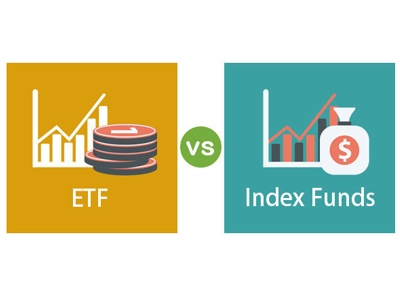Passive funds suit investors who are looking for low-cost options and don’t want to take risk of fund selection. And within the passive fund basket, there are two options - index funds and exchange-traded funds (ETFs). Both of them replicate the index that they track. But there are many subtle yet significant differences between these two products that one should understand.
Let us begin with transactions
While units of index funds can be bought and sold directly with the fund houses by any KYC-compliant MF investor, one must hold a demat account to invest in ETFs.
As a result, an investor can avail real-time price of an ETF. This means savvy investors can buy and sell at a certain price, limiting orders, creating stop loss and so on. However, an unitholder in index funds can buy and sell at the day’s applicable NAV. And according to new regulations, investor will get NAV on the day the fund house receives the investment amount.
Tracking error
Both index funds and ETFs aim to replicate the index as closely as possible. Yet, these passive funds cannot exactly replicate the index because of factors such as inflows, outflows, expense ratio and so on. This difference in the passive fund and the index it is tracking is called tracking error. For instance, if BSE Sensex has delivered 10% return in one year and a passive fund tracking BSE Sensex has given 9%, the difference of 1% is largely due to tracking error.
Index funds are likely to have higher tracking error than ETFs since they may hold higher cash to provide for redemption needs. In case of ETFs, there is no cash holding since the funds are not involved in the purchase and redemption of units.
Cost
While both are low-cost products as there are no active management fees, total expense ratios (TERs) of index funds are generally higher than TER of ETFs. But before you arrive at the conclusion that ETFs are more cost-efficient, note that TERs of ETFs do not take into account the external costs such as broking account opening fees, brokerage charge, the bid-offer spread and so on. Basically, TERs of ETFs do not take into account costs related to entering, holding and exiting the investment. Further, some of the ETFs do not have adequate liquidity. This can have an impact while exiting.
Options
There are 113 passive products in the Indian mutual fund industry, heavily tilted towards ETFs with 82 being ETFs and the remaining 31 index funds.
Both ETFs and index funds offer products that track equity, debt and gold indices.
Click here to see the entire product basket. The overall AUM stands at Rs 2.40 lakh crore as on December 15.
Mutual Fund investments are subject to market risks, read all scheme related documents carefully.






